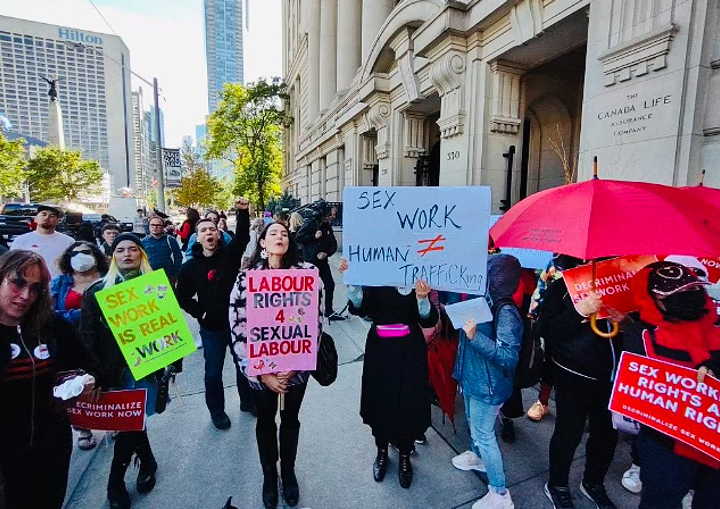You need to add a widget, row, or prebuilt layout before you’ll see anything here. 🙂
I’m a sex worker: I’ve been judged and mistreated by doctors who have sent me to the STI clinic for regular medical issues | Daily Mail
You need to add a widget, row, or prebuilt layout before you’ll see anything here. 🙂
Sex worker takes on financial sector “debanking’, with outcome hailed as transformative for adult industry | ABC News (Australia)
You need to add a widget, row, or prebuilt layout before you’ll see anything here. 🙂
Belgium Protects Sex Work Employees’ Right To Refuse Customers, Sex Acts | Reason
You need to add a widget, row, or prebuilt layout before you’ll see anything here. 🙂
Landmark UN Report Calls for Sex Work Decriminalization | Human Rights Watch
You need to add a widget, row, or prebuilt layout before you’ll see anything here. 🙂
How sex work changed after two decades of decriminalisation in New Zealand | Mail & Guardian
You need to add a widget, row, or prebuilt layout before you’ll see anything here. 🙂
Canadian Sex Workers Are Making History
Prostitution laws, not sex work, source of ‘structural inequality,’ says lawyer | Coast Reporter
You need to add a widget, row, or prebuilt layout before you’ll see anything here. 🙂
India’s Supreme Court Orders Police to Respect Prostitutes’ Rights | The New York Times
You need to add a widget, row, or prebuilt layout before you’ll see anything here. 🙂
Belgium Decriminalizes Prostitution | Reason
You need to add a widget, row, or prebuilt layout before you’ll see anything here. 🙂




